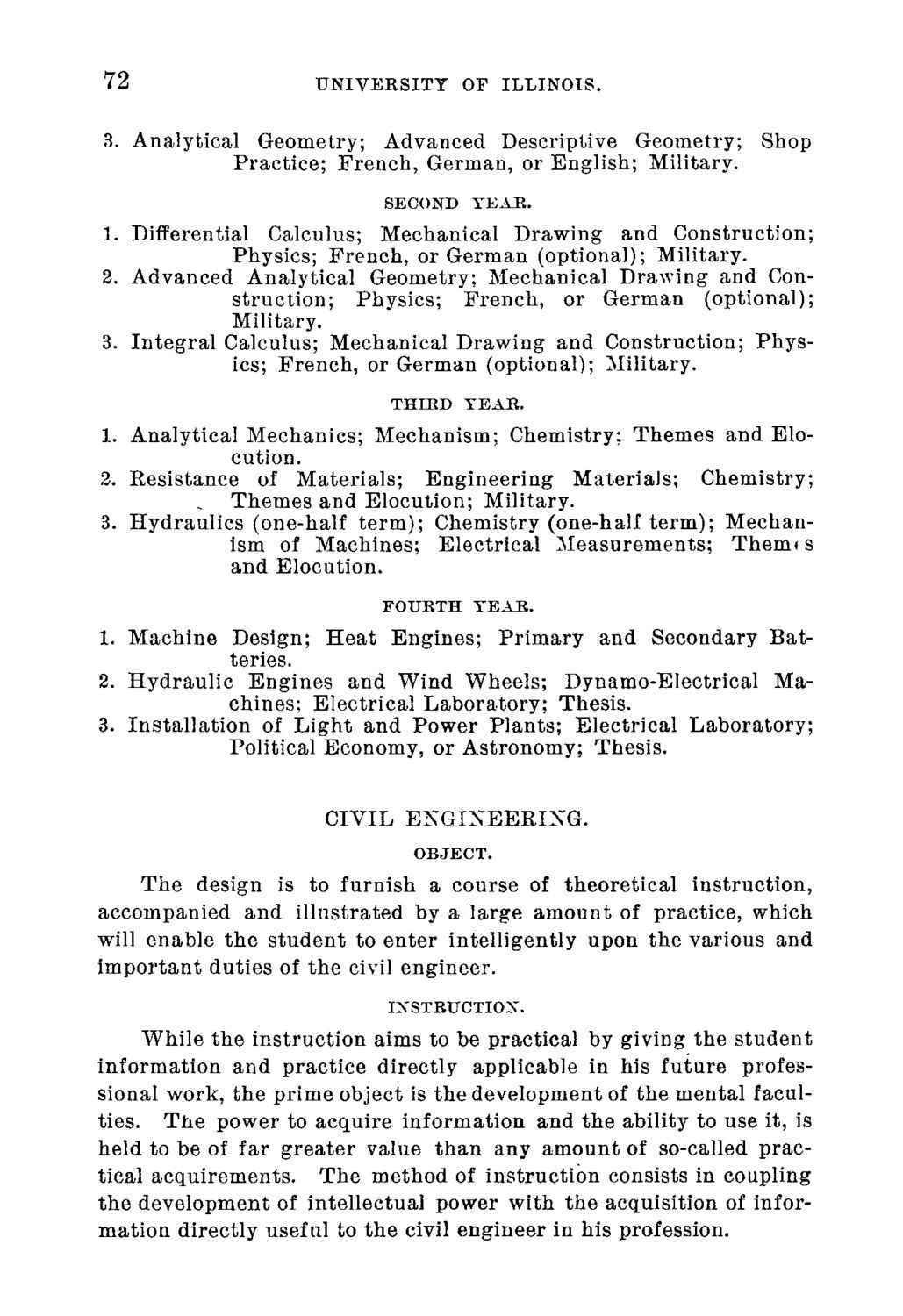Caption: Course Catalog - 1891-1892
This is a reduced-resolution page image for fast online browsing.

EXTRACTED TEXT FROM PAGE:
72 UNIVERSITY OP ILLINOIS. 3. Analytical Geometry; Advanced Descriptive Geometry; Shop Practice; French, German, or English; Military. SECOND YEAJi. 1. Differential Calculus; Mechanical Drawing and Construction; Physics; French, or German (optional); Military. 2. Advanced Analytical Geometry; Mechanical Drawing and Construction; Physics; French, or German (optional); Military. 3. Integral Calculus; Mechanical Drawing and Construction; Physics; French, or German (optional); Military. THIED TEAE. 1. Analytical Mechanics; Mechanism; Chemistry; Themes and Elocution. 2. Resistance of Materials; Engineering Materials; Chemistry; Themes and Elocution; Military. 3. Hydraulics (one-half term); Chemistry (one-half term); Mechanism of Machines; Electrical Measurements; Themis and Elocution. FOURTH TEAK. 1. Machine Design; Heat Engines; Primary and Secondary Batteries. 2. Hydraulic Engines and Wind Wheels; Dynamo-Electrical Machines; Electrical Laboratory: Thesis. 3. Installation of Light and Power Plants; Electrical Laboratory; Political Economy, or Astronomy; Thesis. CIVIL ENGINEERING. OBJECT. The design is to furnish a course of theoretical instruction, accompanied and illustrated by a large amount of practice, which will enable the student to enter intelligently upon the various and important duties of the civil engineer. INSTRUCTION. While the instruction aims to be practical by giving the student information and practice directly applicable in his future professional work, the prime object is the development of the mental faculties. The power to acquire information and the ability to use it, is held to be of far greater value than any amount of so-called practical acquirements. The method of instruction consists in coupling the development of intellectual power with the acquisition of information directly useful to the civil engineer in his profession.
|